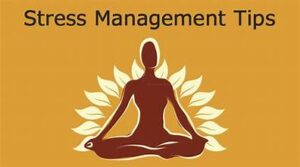
Stress is an inevitable part of modern life, affecting nearly everyone at some point. However, managing stress effectively is crucial for maintaining both mental and physical well-being. This article provides expert tips and techniques to help you achieve a balanced life by managing stress efficiently.
1. Understand the Sources of Stress
The first step in managing stress is to understand its sources. Common stressors include work pressures, relationship issues, financial concerns, and health problems. Identifying the root cause of your stress allows you to address it more effectively.
Tip: Keep a stress diary. Note the times when you feel stressed, what triggered it, and how you responded. This will help you recognize patterns and identify areas for improvement.
2. Practice Mindfulness and Meditation
Mindfulness and meditation are powerful tools for managing stress. They help you stay present and calm, reducing anxiety and improving overall mental clarity.
Expert Tip: Set aside 10-15 minutes each day for mindfulness or meditation. Find a quiet space, focus on your breath, and let go of any racing thoughts. Apps like Headspace or Calm can guide you through various techniques.
3. Engage in Regular Physical Activity
Exercise is a natural stress reliever. Physical activity releases endorphins, which are chemicals in the brain that act as natural painkillers and mood elevators.
Expert Tip: Aim for at least 30 minutes of moderate exercise, such as brisk walking, cycling, or swimming, at least five times a week. Find an activity you enjoy to make it easier to stick to your routine.
4. Maintain a Healthy Diet
What you eat can significantly impact your stress levels. A balanced diet helps your body cope with stress more effectively by providing essential nutrients and stabilizing blood sugar levels.
Expert Tip: Incorporate plenty of fruits, vegetables, whole grains, and lean proteins into your diet. Avoid excessive caffeine and sugar, which can lead to mood swings and increased stress.
5. Prioritize Sleep
Quality sleep is crucial for managing stress. Lack of sleep can exacerbate stress and affect your overall health.
Expert Tip: Establish a regular sleep schedule. Aim for 7-9 hours of sleep per night and create a relaxing bedtime routine. Avoid screens and caffeine in the evening to improve sleep quality.
6. Build a Support Network
Having a strong support network can help you manage stress more effectively. Share your feelings with friends, family, or a counselor. Sometimes, talking about your stress can provide relief and offer new perspectives.
Expert Tip: Join a support group or engage in social activities to build connections with others. This can help you feel less isolated and more supported.
7. Practice Time Management
Effective time management reduces stress by helping you stay organized and focused. Prioritizing tasks and managing your time wisely can prevent feelings of overwhelm.
Expert Tip: Use tools like to-do lists or time management apps to plan your day. Break tasks into smaller, manageable steps and tackle them one at a time.
8. Learn to Say No
Overcommitting can lead to stress and burnout. Learning to say no is an essential skill for managing your workload and maintaining a healthy balance.
Expert Tip: Assess your priorities and commitments. If you feel overwhelmed, politely decline additional responsibilities or ask for help.
9. Incorporate Relaxation Techniques
Incorporate relaxation techniques into your daily routine to help manage stress. Deep breathing exercises, progressive muscle relaxation, and guided imagery can be effective in reducing tension.
Expert Tip: Practice deep breathing exercises by inhaling slowly through your nose, holding your breath for a few seconds, and exhaling through your mouth. Repeat several times to promote relaxation.
10. Seek Professional Help When Needed
If stress becomes overwhelming and unmanageable, seeking professional help is essential. A mental health professional can provide guidance, therapy, and, if necessary, medication to help you cope with stress more effectively.
Expert Tip: Don’t hesitate to reach out for help. Therapists and counselors can offer strategies and support tailored to your specific needs.
Conclusion
Managing stress effectively requires a combination of understanding its sources, implementing healthy habits, and seeking support when needed. By incorporating these expert tips and techniques into your daily routine, you can achieve a more balanced life and enhance your overall well-being. Remember, managing stress is an ongoing process, and it’s important to be patient and persistent in finding what works best for you.

